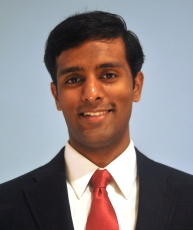Dear Colleague,
I trust this letter finds you well. You are about to go on a journey that will take you from the macro to the micro, from superficial to profound, from the tallest of men to the minutest cells of the body. With apologies to Emily Dickinson, the tomes you read will lift the top off of your head, like a great poem. The people you meet will be even more extraordinary. Having already traversed a part of this journey I would like to herein proffer my fellow traveler some advice that I wish I had before walking down this long, winding--yet ever-rewarding--road. Yes, it may not be as easy as college. Yes, you may question yourself at times. Yes, you will become a better human being.
On studying
The ultimate goal of medical school should be long-term retention of material, not the bulimic memorize-regurgitate-forget routine some of us may have been comfortable with in high school and college. To help you stay on track, be mindful of the fact that you are learning not just to pass exams, but for the sake of providing the highest quality of care for your future patients. To this end, several others and I have found digital flashcards to be the best in terms of returns on time invested. However, bear in mind that flashcards are not a primary learning tool--you must still learn from other sources such as lectures and textbooks. Instead, using flashcards is an aid in reviewing discrete facts and concepts throughout the year so that you do not need to scramble to relearn mounds of information right before exam time. In addition, it is helpful to create condensed outlines of your lectures as you study so you may review a few pages of notes as opposed to hundreds of PowerPoint slides when you need a quick refresher.
On time management
Time is one of the scarcest resources, and many will say that you will not have time to do anything else but study. Yes, you will meet some students who spend all of their time doing nothing but studying (or pretending not to be doing so), do not believe that you have to do so in order to be successful. It is true that you can spend all your time studying, but you must learn to balance books with other aspects of your life as well. Remember that you are a human being, not just a medical student and allowing yourself time to be human will make you a better doctor.
You are here because you are intelligent and capable of keeping up with the voluminous material. In fact, most would agree that medical school is considered "hard" due to the amount, rather than the intrinsic difficulty, of the material you are expected to master. Whatever study methods you choose to follow, take breaks while you are studying. You will reach a saturation point after a certain amount of reading. Depending on where you are, you can use your break to wash the dishes, catch up on world affairs, or read that Virginia Woolf novel you've been meaning to finish since college. Taking breaks also helps to prevent the computer vision syndrome and repetitive stress injury which commonly afflicts the modern student.
Sleep
You should never have to pull all-nighters in medical school. Let me repeat that--under no circumstances should you have to stay up from 8pm one day to 8am the next to keep up with material unless you have failed to do a diligent job of constantly reviewing class material as you learn it. Consistently spending about four hours reviewing the lectures of that day and one hour reviewing old material may even leave you with a substantia amount of free time on the weekend. Furthermore, sacrificing sleep can be counterproductive since we synthesize knowledge during those precious eight hours every night. Of course, such a schedule is rather idealist, and other commitments can frequently hinder your planned daily studying routine. This is fine and inevitable. Just make an honest effort to catch up with the material as soon as possible. New material snowballs fast, and you should never find yourself cramming new material a few days before the exam. (But you already knew that, right?)
Exercise
At least 30 minutes of vigorous activity a day is ideal. Unfortunately for many, this is much easier said than done but don't neglect your body. One compromise to consider is aiming for three thirty-minute strength interval training sessions a week with rest days in between, allowing for the maximal results with the minimal use of time. You could also squeeze in a few sets of squats or push-ups during your hourly study breaks, situation permitting. And if you think exercise subtracts too much from your study time--research has shown that exercise and being outdoors actually improves cognition.
Life outside of the books
Your outside time will be somewhat more limited from here on out, but don't be afraid to explore other interests. You will have time to go on road trips, strum a few chords on the guitar, watch that film you've been dying to see since it came out in theaters. Don't leave behind your passions just because you are studying to be a physician. Be inspired by physicians who have done marvelous work in concert with medicine, like William Carlos Williams and Atul Gawande. Let your pastimes inform your medicine. This will make you a more complete doctor and well-rounded human being.
If you ever need to get in touch with a fellow traveler as you walk this journey, please find my contact information below. Best of luck!
Truly yours,
|
Joseph Allencherril, MS4 |
 |
Back to July 2015 Issue of IMpact

